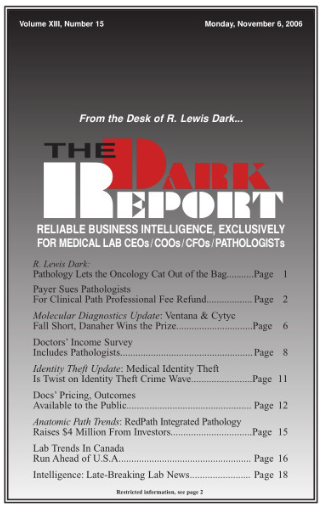CEO SUMMARY: In specific ways, laboratories in Canada are already confronting the future that awaits laboratories in the United States. Many of the challenges are identical, including shrinking reimbursement and funding, as well as a shortage of skilled lab staff. One unfolding development is pressure on pathologists to accept less compensation, leading pathologists in two …
Lab Trends In Canada Run Ahead of U.S.A. Read More »
To access this post, you must purchase The Dark Report.


